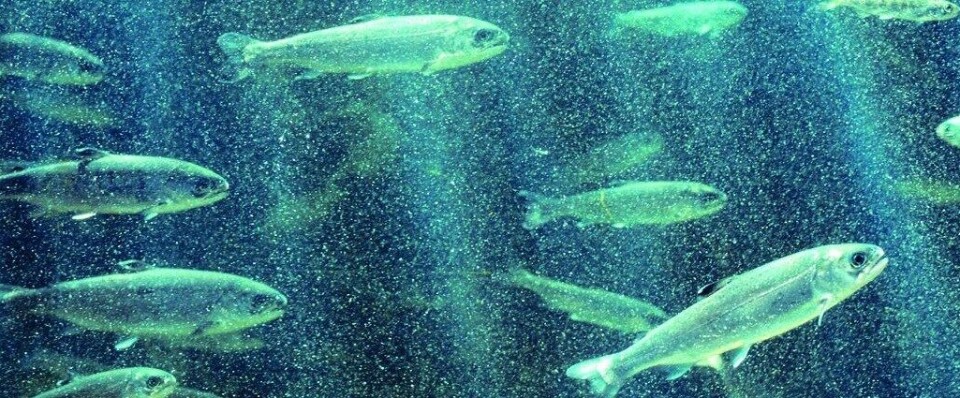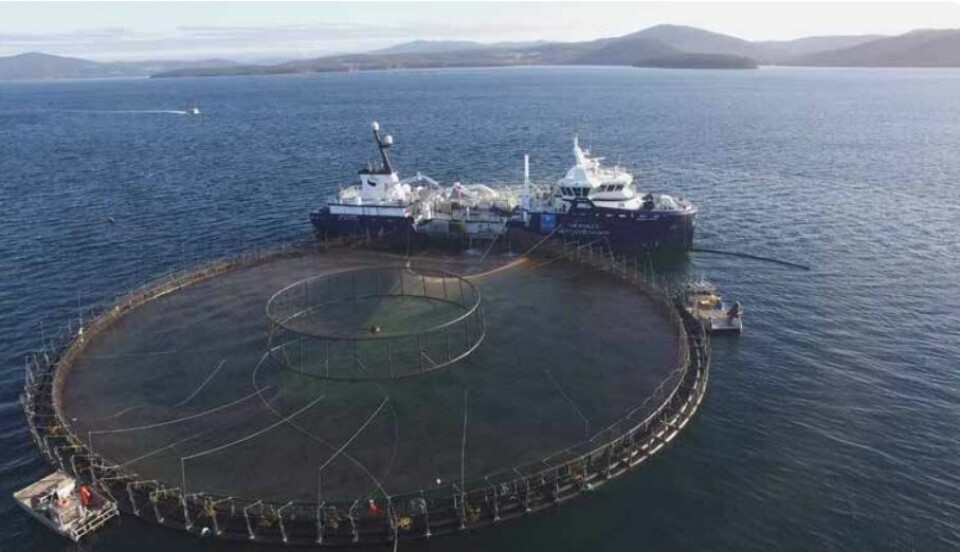
Tasmania biomass limit slashed after 1.35 million fish deaths
Tasmania's Environment Protection Authority has slashed the maximum amount of salmon and trout allowed to be farmed in Macquarie Harbour, after it was revealed that 1.35 million fish have died there since last October.

Wes Ford, director of the environmental watchdog, said yesterday he had set the biomass limit for salmonids in Macquarie Harbour at 9,500 tonnes for the next two years, a reduction of 21 percent on the current limit of 12,000 tonnes.
Ford said he had advised the three companies that operate at the site on Tasmania's west coast - Huon Aquaculture, Petuna and Tassal - that he had set the peak biomass for 1 June 2018 to 31 May 2020 at 10.26 tonnes per hectare, down from 13 tonnes per hectare.
“While the harbour is showing signs of recovery due to the strong seawater surges bringing in oxygen rich seawater and a general improvement in the health of the benthic environment, this further reduction was warranted to reduce the pressure on the harbour and allow for further recovery," Ford said.
He said the determination is based on consideration of the current environmental status of the harbour, of which there were a number of areas of concern, including sub-surface dissolved oxygen conditions. “My view is that it is prudent to adopt an approach which reduces the biomass for a sufficient time to allow harbour response to be monitored and interpreted meaningfully," Ford said.
Pilchard virus transferred
An area management agreement report provided by Huon Aquaculture, Petuna and Tassal revealed that the 1.35 million fish deaths were mainly due to an outbreak of pilchard orthomyxovirus (POMV), transferred from wild populations.
Wes Ford told ABC News in Hobart that the “mixing of young fish with old fish” could exacerbate the likelihood of disease in the population. "POMV can be exacerbated by stress caused by heat, low oxygen, and I think this summer we've seen some elevated temperatures and clearly some concerns about oxygen," he said.
ABC News reported Huon Aquaculture saying it was "disappointed" that it had warned other farmers and the government in September that mixing young and old fish at the same site would increase the risk, but was “ignored”.
A Huon spokesman was quoted as saying: "Since then, we understand the practice [of mixing age groups] will cease in the future. Huon does not mix year classes of fish. We remain hopeful that biosecurity improvements will be a focus for the industry and the government as a matter of urgency."
A Tassal spokesman said: "Tassal and Petuna have worked proactively to embed better biosecurity and environmental outcomes for the harbour via a joint-venture farming operation, which enables both separation of year, class and extended fallowing periods for leases."






















































